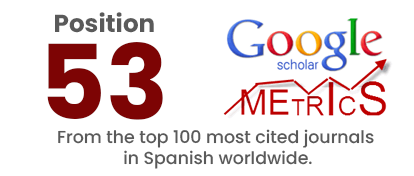The personal protection from racial discrimination in the conditions of fight against terrorism
DOI:
https://doi.org/10.36097/rsan.v1i25.746Keywords:
international legal acts, discrimination, terrorism, protection, law, people.Abstract
In the context of economy globalization and the integration of interstate relations, as well as the short-sighted policies of the leaders of some countries, there is a serious danger of terrorist acts of various groups, arising on religious grounds. In such circumstances, the probability of racial discrimination is quite high. Racism needs neither explanation nor analysis. Its ineradicable slogans spread like a tide, which can flood society at any moment. The existence of racism does not require justification. This categorical statement, as absolute as the unprovable, means that racism has all the signs of an axiom. Racism is a concept, accessible to everyone, albeit not universally accepted. The more it is vague and seemingly obvious, the more effective and dynamic it is. The purpose of this work is to investigate the complex of criminally-legal and criminological problems of fighting against the incitement of national, racial or religious hatred in the conditions of terrorism. The article also proposes the scientific development of proposals and recommendations, aimed at improving of preventive activities, criminal legislation, as well as the practice of its application.
Downloads
References
The Universal Declaration of Human Rights (adopted by the UN General Assembly on 10.12.1948) // Rossiyskaya Gazeta. - 1995. - № 67.
The International Convention on the Elimination of All Forms of Racial Discrimination (December 21, 1965) // Current international law. Moscow: Publishing house of the International Independent Institute of International Law. 1997. - Vol. 2. - Pp. 72 - 84.
Precedents of the Grand Chamber of the European Court of Human Rights [Electronic source]. – Available at: www.commissioner.coe.int. - P. 239.
The United Nations Global Counter-Terrorism Strategy. URL: http://docs.cntd.ru/document/902114207.
Mutual praise society. Country scorecard and evaluation of the Universal Periodic Review system of the U.N. Human Rights Council // Geneva: UN Watch, 2009.
Ramcharan, Bertrand G. The United Nations High Commissioner for Human Rights: the challenges of international protection. The Hague; New York: Kluwer Law International, 2002.
Starke J.G. Human rights and international law // Human rights: ideas and ideologies. L., 1979.
Chowdhury, Tareq M.R. Legal Framework of International Supervision. Edsbruk, Sweden: Akademitryck, 1986. Review of annual reports under the follow-up to the ILO Declaration of fundamental Principles and rights at Work. ILO, 2008.
Upton, Helen. The Human Rights Council: First Impressions and Future Challenges // Human Rights Law Review. Oxford University Press, 2007. Vol. 7 (1). Pp. 29-39.
Kirchmeier, Felix. The Role of Parliaments in the Universal Periodic Review: A review of resolution A/HRC/RES/5/1 of the Human Rights Council and further suggestions. Geneva: Friedrich Ebert Stiftung, 2009.
Abashidze A.Kh., Goltyaev A.O. Universal Periodic Review // Russian Yearbook of International Law, St. Petersburg: Russia-Neva, 2011. Pp. 295-305.
Cheese, P. The talent powered organization: Strategies for globalization, talent management and high performance/P. Cheese, R. T. Thomas, E. Craig//London: Kogan Page Publishers, 2008.
Davies, B. Talent management in academies/B. Davies, B. J. Davies//International Journal of Educational Management. – 2010. –№24 (5). – P. 418-426.
Ericsson, K. A. The making of an expert/K. A. Ericsson, M. J. Prietula, E. T. Cokely//Harvard Business Review. – 2007. –№85 (7/8). – P.115-121.
Peters, T. Leaders as talent fanatics/T. Peters//Leadership Excellence.– 2006. –№23 (11). – P. 12 – 13 p.


















